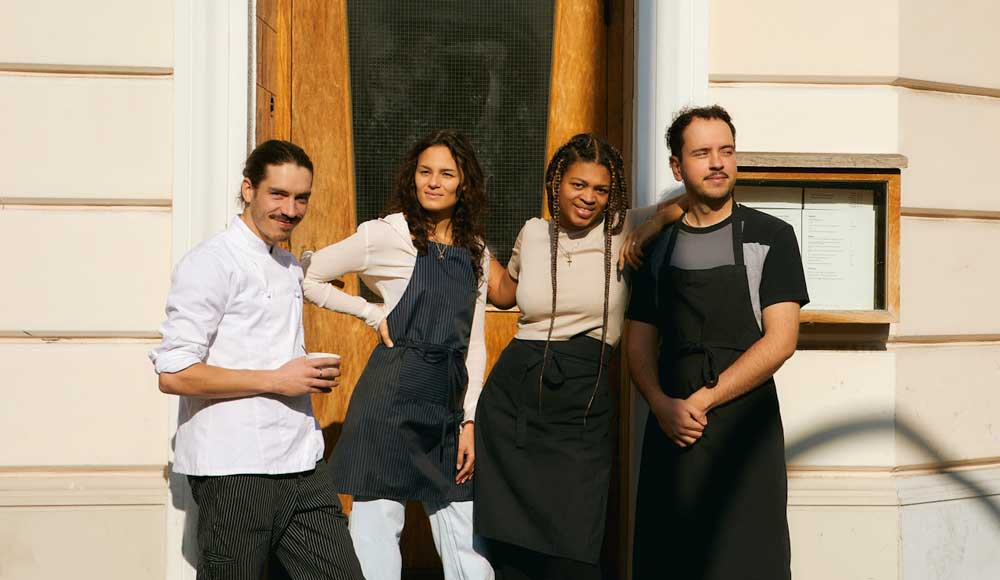For this week’s Reality Cheque, we’re looking at paying off debt versus padding your savings—and which one a financial therapist says is harder to tackle.
If you’re realistic and disciplined about your needs—and can resist some of those impulse buys—growing your income can mean growing your savings.
By Rob Csernyik
Zola McAdie worked for years as a musician and at a grocery store. A savings account was far from his mind. “I made a lot of decisions in my life that were with the intention of saving money,” he says, but his objective was reducing costs and stretching paycheques. Not putting savings away for a rainy day or to meet a goal.
But after taking a software development bootcamp and getting a job in the field, his income doubled. As he grew more experienced, his salary pushed into six figures.
Although he’s socked away about $300,000 over time, between a registered retirement savings plan (RRSP), savings and investments, McAdie’s not entirely convinced the adage “when you earn more, you save more,” is true—even if he’s lived it.
Is it a myth that you’ll save more when you earn more?
McAdie’s savings ramped up while taking on extra work during the height of the pandemic. “More than having a natural inclination for saving, I don’t always have a natural inclination for spending large amounts,” he says. “My income started to outpace my natural spending habits.”
Technically, he thinks saving more when earning more is not a myth, but that practically it’s tougher to achieve these days.
Certified financial planner Kelly Ho, a partner at DLD Financial in Vancouver, offers a degree of guarded optimism. Saving more as you earn more “should be a reality,” she says. Previous generations took it for granted that as they rose through career ranks, they could put their extra earnings into retirement savings, investments or an emergency fund.
But with Canadians of all income levels feeling the squeeze, saving can feel like a relic of time gone by. The good news is that many Canadians can still achieve some savings goals—getting there just may require more patience and planning than before.
Lifestyle creep, or “where did my savings go?”
“Lifestyle creep” is the biggest factor in why people can’t save more as they earn more, says Ho. Think of it as the “treat yourself” mentality run amok. There’s a difference between budgeting for splurges and deciding that more income and fewer budget constraints means you can and should spend more on material comforts and impulse purchases.
“Sometimes savings gets put on the back burner as a result, and then people wonder, ‘How is it that I’m making so much more money, but I’m unable to save?’ ” It’s because instead of budgeting for higher savings as salary bumps up, the level stays the same—for some, it remains zero. (One way to save more is the “pay yourself first” method: commit to putting away a percentage of salary increases or bonuses before you have the chance to spend.)
The biggest lifestyle creep culprits, in Ho’s view, are living arrangements. With one-bedroom apartments in cities like Toronto and Vancouver often renting for $2,000-plus a month, she says people need to think twice about upgrading their digs just because they’re earning more. Some of her clients, even those who earn more than average Canadians do, have taken in roommates or cook at home more in order to meet their financial goals—but they don’t view these measures as a forever decision.
“This is where they’re at now, but the future is looking brighter, as long as they have a solid plan in place,” she says.
Be realistic about your income and savings, not delusional
In Ho’s view sometimes people need a reality check. Some savings and financial goals are delusional, she says. “It’s a very strong word,” she says. “But sometimes someone needs to tell them a goal is not possible or it’s going to take longer than they imagine.”
This sort of clarity can come from speaking with licensed financial experts, who will take a holistic view of your finances and cash flow. Ho, a certified financial planner, also looks at a client's expectations and the lifestyle they want to live.
One factor is whether a person is single or has a partner. Single-person households are viewed by some people as costing less to run, but Ho thinks this is also a myth. “Typically, it costs more because you are on your own and on the hook for everything.” There’s even a name for it: the single’s tax. McAdie knows this first hand. When a relationship ended he moved out of a shared, rent-controlled co-op apartment into his own place. His new rent? About four times as much as he had been paying, even before other expenses.
Ho says she often offers “very conservative” advice to single clients to make sure they’re able to meet their goals. It may seem like tough love, but it’s necessary. Sometimes, based on where and how clients want to live, she has advised getting a second part-time job or looking for a higher-earning primary one. It seems obvious, but it’s not.
“Sometimes people do need that wake up call,” she says. “We’re not magic, and we can’t make numbers appear.”
Rob Csernyik is an award-winning, full-time freelance journalist specializing in business and investigative reporting, as well as long-form features.
Read more from this issue of The Get:
- MVP: Emily The Recruiter on quitting for good (and other work-related stuff)
- Will my own personal debt burden my new spouse?
- The sober saver trend: How much drinking can cost you
- Do you pay yourself first?
-----------------------------------------------------------------------------------
The Get is owned by Neo Financial, and the content it produces is for informational purposes. Any views expressed are those of the individual author and/or of The Get editorial team., not of Neo Financial or any of its partners or affiliates. The content is not meant to replace professional financial advice, and it should not be the sole source for making any financial decisions. Always do your due diligence before deciding what to do with your money. Read The Get’s editorial mandate.



